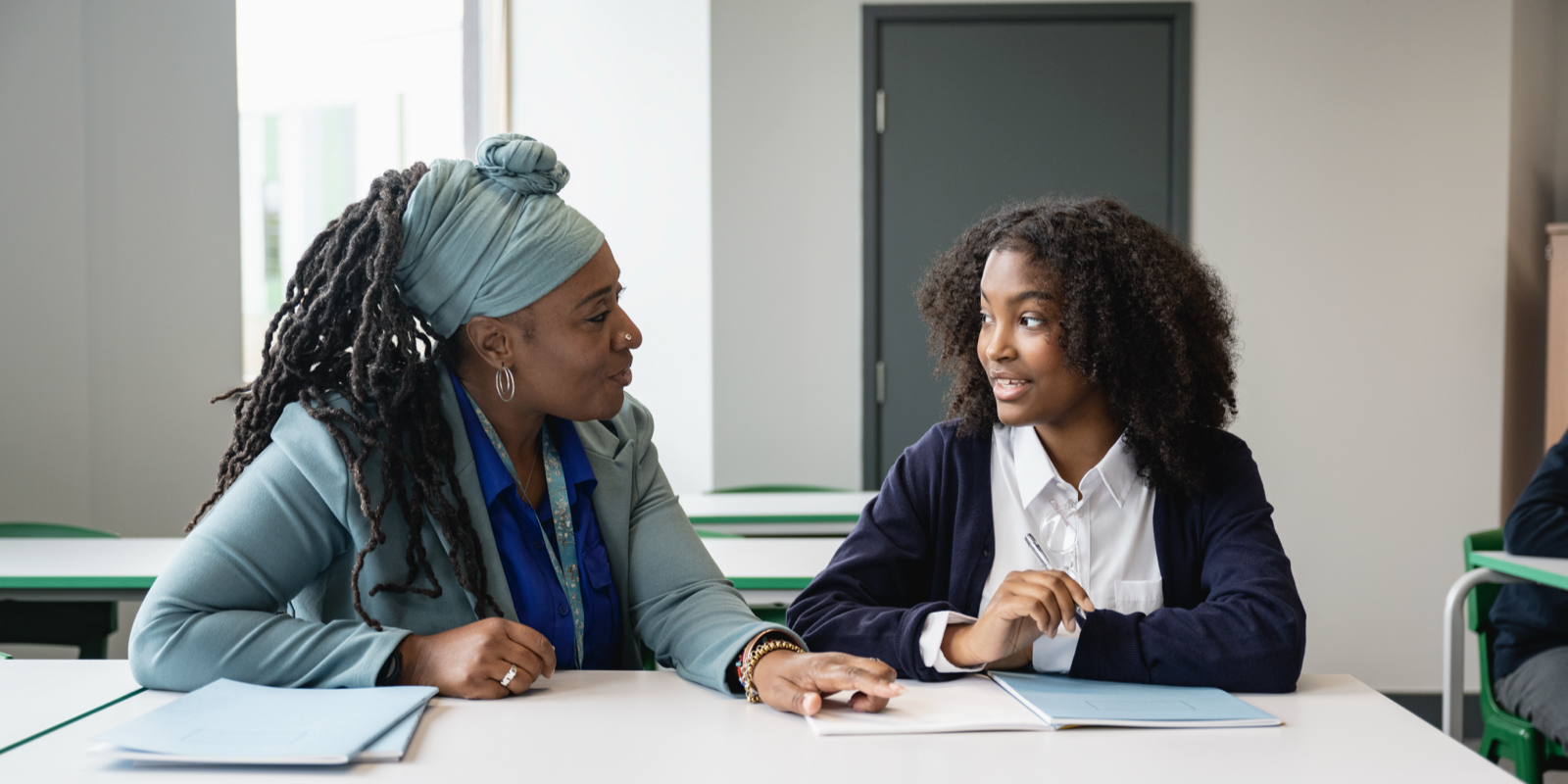How we work in a Secondary School

An integral part of SEND, Pastoral, Behaviour and Teaching and Learning teams.
When a Learning Talking therapist works in a secondary school they become an integral part of SEND, Pastoral, Behaviour and Teaching and Learning teams.
Service delivery models vary widely across settings, from working exclusively with staff to delivering direct therapy to a caseload of young people with EHCPs. Some schools choose a mixed model, while others adapt their approach over time. Almost always, schools include initial full assessments in their package, which can involve detailed report writing to support understanding, planning and the EHCNA process. When needed, we also refer children to more specialist services, such as NHS CAMHS, for further assessment of neurodevelopmental conditions like Autism and ADHD.
Universal model – aiming to create an environment where all young people and their families are surrounded by those who can facilitate language and communication and prevent negative consequences of language difficulties such as behaviour and mental health decline.
Targeted model – often there are young people for whom language and communication intervention is required. Using assessment information to create interventions, the therapist will train and support school staff to implement therapy programmes. This model allows for large numbers of young people to be supported and staff to be upskilled.
Specialist model – in some cases, a young person with complex speech, language and communication needs may require ongoing direct input from a speech and language therapist. This may comprise a block of 6-12 weekly sessions followed by handing over to school staff or a therapy break. Some schools choose this model for all their young people if there is the resourcing.
Our therapists provide flexible, school-focused support throughout the day. This example shows a typical schedule in a secondary school, including direct therapy, assessments, staff coaching, parent meetings, and collaboration with school teams.
Sample schedule
In secondary schools, our therapists support busy, fast-paced environments with a wide range of input, from working directly with students to advising staff, attending meetings, writing reports, delivering training, and managing a varied, complex caseload throughout the day.
8:30
Planning8:50
Meeting with parent9:30
Assessment of student10:30
Observation of student in class11:15
Clinical notes and programme planning12:15
Lunch12:45
Emails/admin1:00
Coach LSA to deliver an intervention2:00
Co- production of a communication passport with a year 7 student3:00
Social Story writing to support an autistic student3.30
Liaison with teachers and SENDco
Without their specialist support in creating targets for children, showing learning support staff how to implement and overseeing this we would struggle to meet the needs of children with speech and language needs. Early identification and support provided by Learning Talking has helped children make good progress and develop their speech skills tremendously. Being able to talk through concerns with a specialist really helps get the right support in place, whether that is some in school support or a referral for external support or assessment. Having another professional talk with parents about their child really helps parents to make decisions that support their child
Handsworth Primary
At Ainslie Wood/ our school we have really benefited from having our speech and language therapist, Annie working alongside our staff and families, to provide tailored support in order to to help children improve their communication and language skills. Whether through working individually with children, providing training and resources, writing reports and setting targets; this support has proved invaluable.
Phyta Charalambous, SENDCo, Ainslie Wood
Learning Talking has been an integral part of our school team for nine years. They are without doubt the best team we have ever worked with. Our SALT, Gael, knows us incredibly well and is a highly respected and valued colleague. Gael has developed our understanding and our practice and is highly adept at working with our parents and our wider community to secure the best outcomes for our children. Long may our partnership continue!
Mrs Sheena Smith, Chapel End Junior Academy
